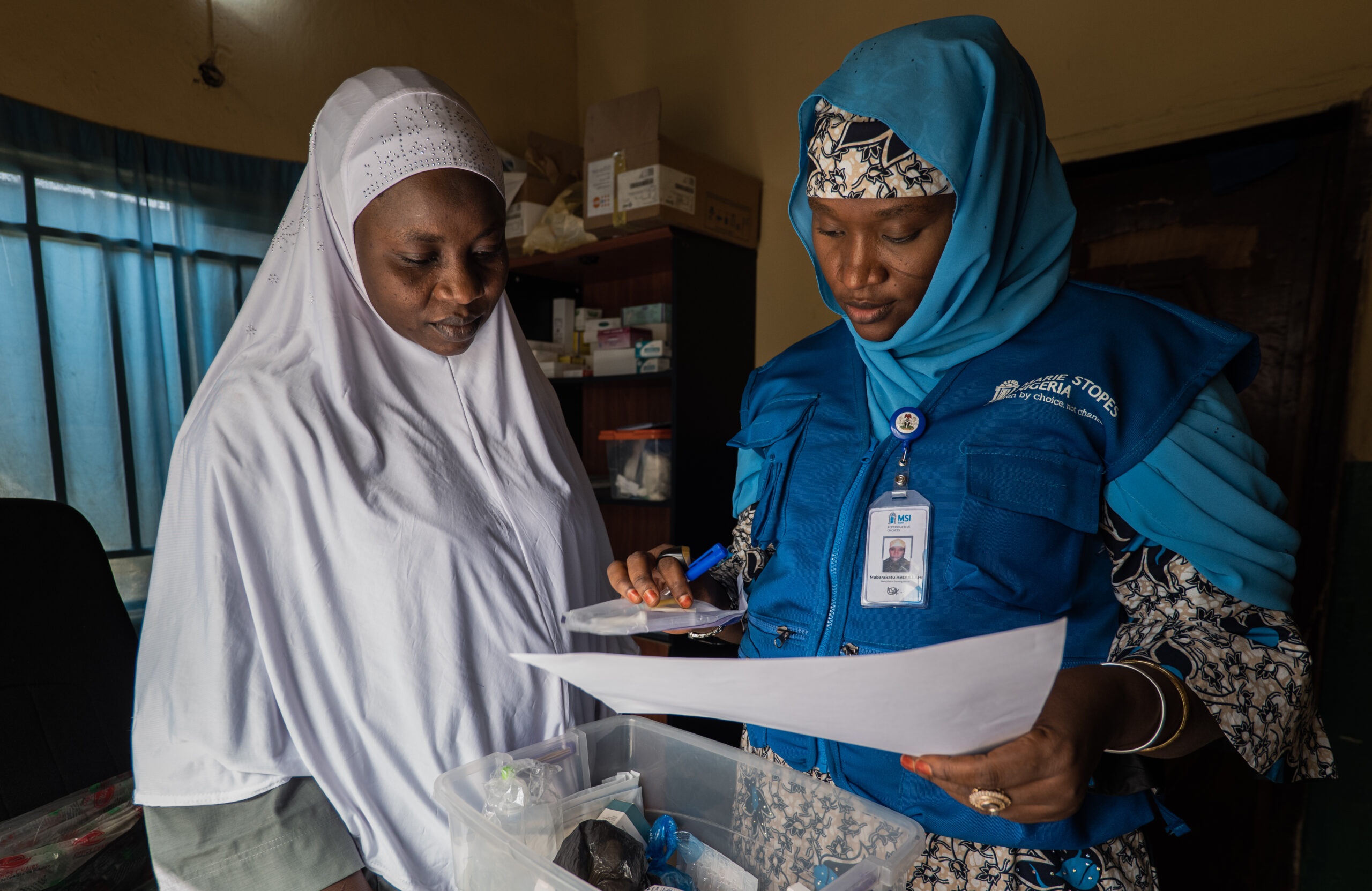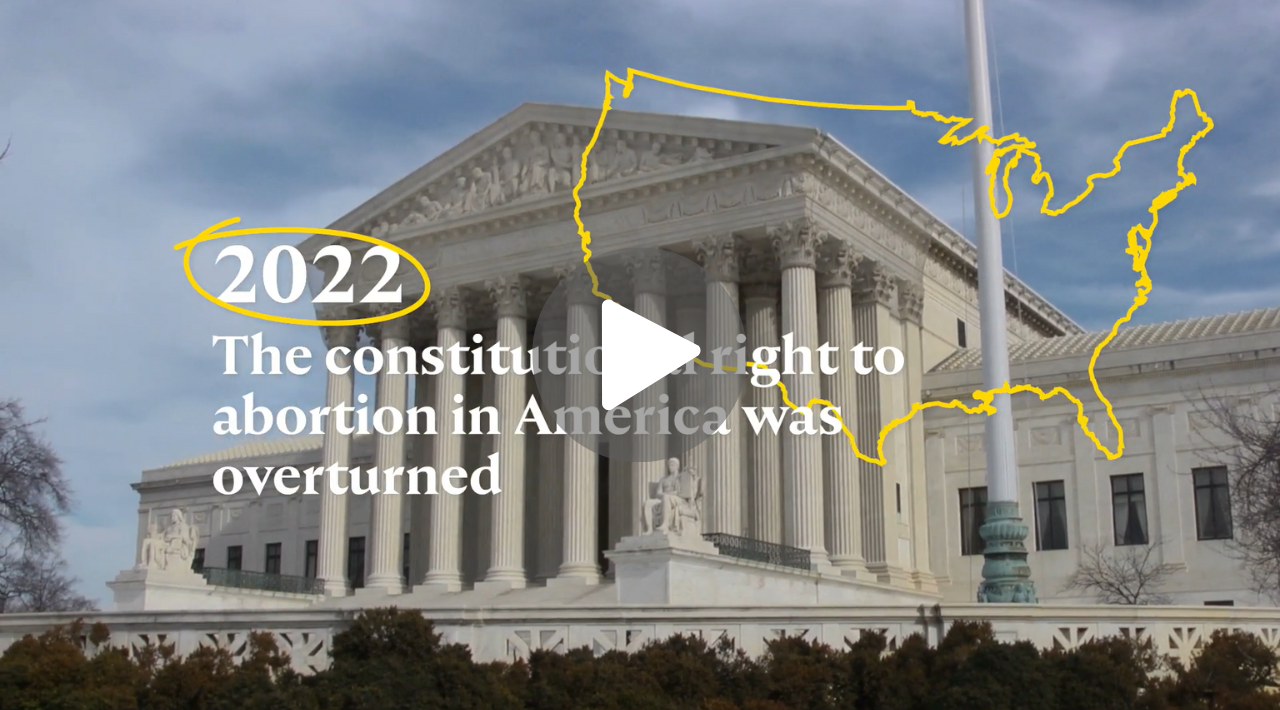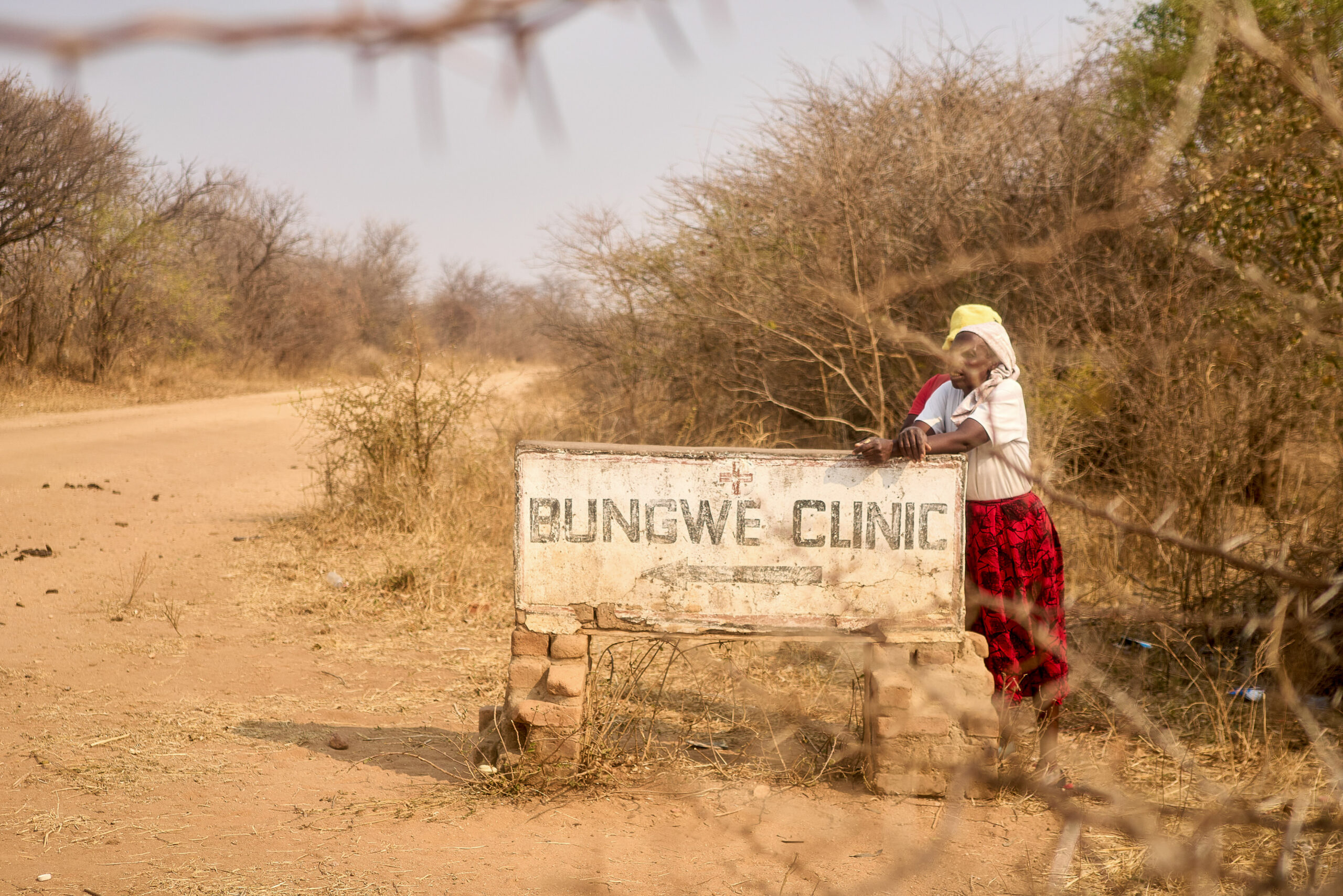“We had to run. All the pain of running is more than the pain of this insertion.”
One Saturday, three years ago, Mariam Haruna’s life was turned upside down.
“We heard shots and gunshots. We were afraid, we ran, we had to flee, we couldn’t take anything we just had to run and leave,” Mariam says.
Her hometown of Potiskum, Yobe in far Northeastern Nigeria had been infiltrated by Boko Haram. Her husband had died in the war, along with two other relatives. So that day she fled, alone with her seven children.
“We heard shots and gunshots. We were afraid, we ran, we had to flee, we couldn’t take anything we just had to run and leave.”
“We were just following the crowd, looking for where to stay. It took one week to get here. As we were coming, anywhere there was a shed or a tree we would rest. When we saw houses we could enter and beg for water and food. Some people would give clothes or a wrapper.”
The widow, 30, recounted her story at the Primary Health Care Centre in Birin Fulani, Gombe, 80 kilometers south of Potiskum.
She was there that day to get a contraceptive implant from the MSI Nigeria outreach team. Like many people displaced in the Boko Haram crisis, Mariam lives in a ‘host community’ and rents three rooms for 1200 naira per month (£2.95).
She supports herself with petty trade; selling salt and kitchen spices and her children do day labour on surrounding farms. With access to long-acting contraception, Mariam is able to begin rebuilding her life and focusing on the future she would like for her and her children.
“This place is more peaceful, so I don’t want to go anywhere else. The children don’t have a father. I can’t take care of them so I will get an implant to reduce the number of problems we have.”
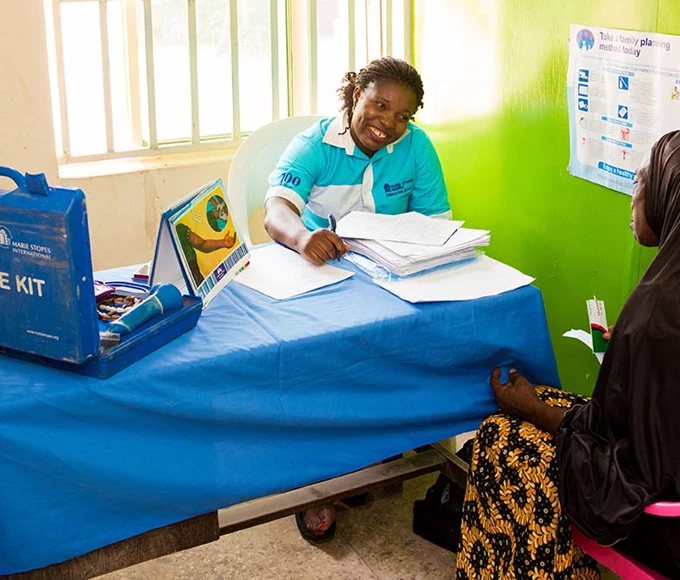
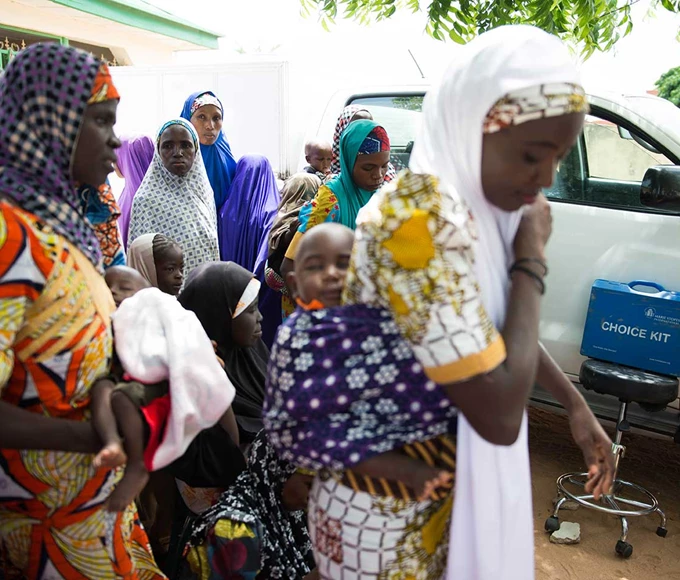
Already struggling to pay her children’s school fees and feed and house them, Mariam has received unwanted attention from men wanting to sleep with her.
“Some people approach me, some people in the community, but I refuse. I want to get remarried to someone who is willing to help me and my children.
“I want to be ready. I don’t want to take chances. I don’t want any more children. I just want someone to help support me and my children. More children would bring more problems.”
When she is asked if it hurt to have the implant fitted, Mariam just smiles and says: “No it doesn’t hurt. We had to run. All the pain of running is more than the pain of this insertion.”
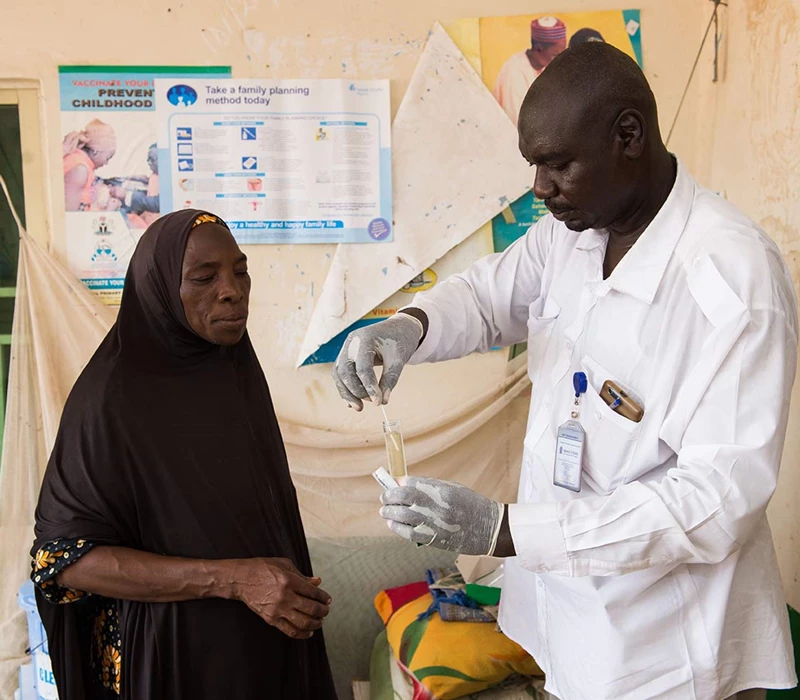
“We had to run. All the pain of running is more than the pain of this insertion.”
– Mariam Haruna






